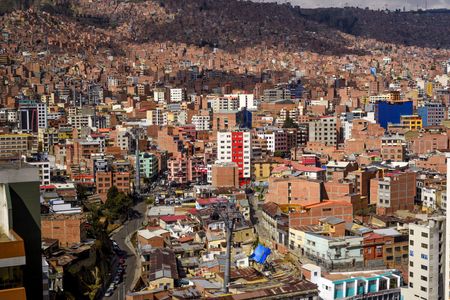By Lucinda Elliott
SAO PAULO (Reuters) -Bolivia is set to become a full member of the South American Mercosur trade bloc following a decision on Tuesday by the Brazilian Senate to approve the country’s admission.
The vote on the accession of Bolivia to Mercosur is expected to be formally concluded during a regional summit on Dec. 7 in Rio de Janeiro.
Brazil President Luiz Inacio Lula da Silva, who holds the temporary presidency of the trade alliance that also includes Argentina, Paraguay and Uruguay, welcomed the expansion on Wednesday in a post on X social media.
“Thank you to the senators for completing this process and congratulations to President Arce and Bolivia for joining us in Mercosur,” Lula said on social media.
Bolivia’s full membership has been eight years in the making. Concerns over the solidity of the country’s democratic institutions had long delayed its admission.
Bolivia President Luis Arce on Wednesday thanked “the efforts” of the Brazilian leader and his people for what Arce described as a “historic milestone” for his country in the face of global challenges, in a post on X.
Senators in Brazil on Tuesday highlighted that Bolivia’s entry would boost regional integration and establish new markets for Brazilian companies given its relevant reserves of natural gas, lithium and other strategic minerals.
Mercosur’s expansion comes as Lula is racing to clinch a free trade agreement with the European Union by the end of this year despite additional environmental commitments made by the EU that have prolonged negotiations.
Prospects for finally concluding the trade agreement with the EU gained traction following the election of ultra-liberal Javier Milei, a staunch critic of Mercosur, as president of Argentina. Milei assumes office on Dec. 10.
Critics warn that Bolivia’s poor deforestation record could hinder future EU-Mercosur talks. Bolivia was one of the worst offenders of primary forest clearances last year, behind only Brazil and the Democratic Republic of Congo, according to Global Forest Watch that monitors deforestation rates.
(Reporting by Lucinda Elliott; Editing by Mark Porter)

